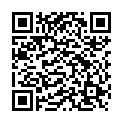|
|
| Modulbezeichnung (engl.):
International Academies |
|
| Code: MAIM290 |
|
- |
|
6 |
| Studiensemester: 2 |
| Pflichtfach: nein |
Arbeitssprache:
Englisch |
Prüfungsart:
Ausarbeitung und Vortrag
[letzte Änderung 16.10.2018]
|
MAIM290 International Management, Master, ASPO 01.10.2016
, 2. Semester, Wahlpflichtfach, allgemeinwissenschaftlich
|
|
|
Empfohlene Voraussetzungen (Module):
Keine.
|
Als Vorkenntnis empfohlen für Module:
|
Modulverantwortung:
Prof. Dr. Stefanie Jensen |
Dozent/innen: Prof. Dr. Stefanie Jensen
[letzte Änderung 16.10.2018]
|
Lernziele:
This module enables students to understand and experience the many facets of a host country (economy, domestic and foreign policy, social and cultural situation, etc...) and to reflect on the relationships between these facets. The situation in the host country will be compared with the situation in the European Union with regard to the above and other aspects (e.g. economic policy, consumer and environmental protection). This allows students to compare the situation of an individual country with that of a group of states within the EU.
After successfully completing this module, students will be able to:
• prepare intensively for the different circumstances (economy, politics, social affairs, culture, etc.) in the host country and combine the information received about different fields from experts with different backgrounds to form an overall picture of the respective host country, to critically analyze this information and to adopt a position of their own.
• understand and reflect on the EU´s position on selected topics such as the monetary union, external and economic relations, energy policy, climate policy, and law-making. Students will study and learn to appreciate the differences in the positions and requirements of the host country and the EU.
• develop and present complex issues from heterogeneous subject areas in English (if necessary without the aids typically available in lecture halls).
• work in mixed groups with foreign students. After completing this module, students will have improved their social and language skills through meetings with students and representatives from the host country. They will also have demonstrated a high degree of commitment, motivation, independence and creativity.
• prepare for business visits and meetings with officials abroad and contribute in a substantial way on a variety of different topics.
[OE+0+0+0+0+0+0=0]
[letzte Änderung 04.11.2019]
|
Inhalt:
• Study trip to the foreign partner university (host country) including lectures, workshops and discussions on economics, domestic and foreign policy, society, as well as special topics from the host country and visits to companies and institutions in the vicinity of the partner university or the region visited.
• Study trip to the European Academy Otzenhausen covering current European issues (e.g. financial and economic policy, external economic relations (e.g. WTO, trade agreements, foreign policy, environmental policy, consumer protection, refugees), as well as the importance of selected central European institutions.
• Creation of a term paper and presentation in English on a specific topic
• Intercultural communication skills and their use in a team
[letzte Änderung 04.11.2019]
|
Weitere Lehrmethoden und Medien:
Lectures/talks, interactive workshops, group work, short impulse presentations, exchange with foreign students, business and institutional visits, term paper with presentation, written reflection.
[letzte Änderung 11.01.2019]
|
Sonstige Informationen:
This module is composed of two study trips (to Mexico and to Otzenhausen); attendance is compulsory for all on-site events and for the preparatory workshop.
[letzte Änderung 11.01.2019]
|
Literatur:
To be announced.
[letzte Änderung 11.01.2019]
|


